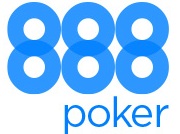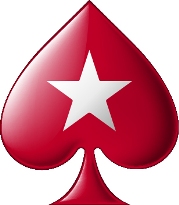There’s an extra round of betting in Stud Poker, so we’re going to talk about both fifth and sixth streets in this chapter. The next chapter deals with the river.
We’ll assume there are our customary three players still in the hand. The random fourth hand from the previous chapter will not figure into the rest of the hand. The table below lists the hands and the percentages of total money won.
Seven-Card Stud Poker, Sample Fifth Street |
|||
| Hand | Percentage of Money Won | ||
| Fifth Card | Fourth Street | Fifth Street | |
| A♦, A♣, 8♦, T♠ | 9♦ | 46.1% | 33.2% |
| J♣, 9♣, T♥, 4♠ | Q♣ | 15.2% | 21.8% |
| 6♥, 6♦, K♠, J♥ | K♣ | 23.5% | 45.0% |
The hidden pair of Aces is now in a decent amount of trouble, but assuming all players stay in until the end, the Aces will still be putting in 1/3 of all money with the expectation of winning all but 0.1 percent of it back. Given the size of the pot going into the fifth street, calling is justified. The trick here is to determine if the player has a pocket pair or a much more dangerous third King, which would make that hand a 73.5 percent winner over time. In this case, they have the pocket pair (6♥6♦). Putting ourselves in the situation of playing the Aces, what do we have to hope for? It goes without saying that we would first want another Ace. The T♦ would be a great card for us in this case, as it would give us a higher two pair, Aces-up versus Kings-up. It would also give us redraws to an Ace-high flush and a full house. The second hand is drawing thin in that two or possibly three of the Kings it would need to make its straight are gone, as is one of the Eights. In this example, only two other clubs are dead, so there are still seven clubs left in the deck. Unfortunately, the clubs would need to come runner-runner. The hand with the Kings is in a good position, but as the Aces would certainly have raised by now, some alarm bells should be going off.
The important thing to note here is that even with a double draw, the drawing hand is a major underdog against two made hands. The pot must be substantial to stay in. Be certain you are getting at least 4:1 odds in a hand like this if you stay in. Other players will likely be raising with their strong hands, so you will need to decide if one or both of them is poker bluffing.
As the old saying goes, though, every dog has his day. Let’s say sixth street brings blanks for the Aces and Kings hands but makes the straight for the second hand. The new percentages are in the next table:
Seven-Card Stud Poker, Sample Sixth Street |
||||
| Hand | Percentage of Money Won | |||
| Sixth Card | Fourth Street | Fifth Street | Sixth Street | |
| A♦, A♣, 8♦, T♠, 9♦ | 2♥ | 46.1% | 33.2% | 0.0% |
| J♣, 9♣, T♥, 4♠, Q♣ | 8♥ | 15.2% | 21.8% | 88.2% |
| 6♥, 6♦, K♠, J♥, K♣ | 4♥ | 23.5% | 45.0% | 11.8% |
The lucky so-and-so has now made the straight and is now an 8:1 favorite versus a 4:1 underdog. Approximately one-ninth of the time, a King or Six will come and make the straight a loser. Also notice that the J♣, 9♣ is in the pocket, which means only three of the straight cards are in view. If four straight cards were out (or four cards for any hand, for that matter), then it would not be a stretch to conclude the straight had likely been made. With three cards, though, the made straight has the advantage of being concealed, which means aggressive players may be willing to raise to see if it’s a bluff. It’s not, so here comes the re-raise!
Seven-Card Stud Poker High-Low Fifth and Sixth Streets
Finally, we’ll continue with the discussion of how nut-low/straight draw hands fare against high hands with little or no chance for low. You’ll remember we are playing 2345. Your low hands will, of course, not always be this good, but if it’s against only one low card showing (the 8♦), you’ll play any low draw every time!
First, 2345 is of four different suits. The results are shown in the table below.
The main theme of this hand is that the 2345 hand that started off so well will now only win around 1/6 of all money. Of course, because it was so large a favorite earlier in the hand, the holder would likely have raised so much there will be enough in the pot to get 5:1 pot odds to stay in! The bad news is that a lot of it is your money. Pot equity will dictate that you stay in, though, as you will have put in around 25 percent of the pot yourself, which means you need to stay in for your 16.1 percent chance because if you fold, it will be inefficient by 8.9 percent. Compounding the problem is that you now have no chance for the high side of the pot, as you can’t beat the Queen-high straight held by the second player.
Seven-Card Stud Poker, Sample Sixth Street |
||||
| Hand | Percentage of Money Won | |||
| Sixth Card | Fourth Street | Fifth Street | Sixth Street | |
| A♦, A♣, 8♦, T♠, 7♦ | 2♥ | 32.7% | 37.4% | 10.9% |
| J♣, 9♣, T♥, 4♠, Q♣ | 8♥ | 11.6% | 23.0% | 73.0% |
| 4♥, 2♦, 3♣, 5♠, K♣ | 4♦ | 55.6% | 39.7% | 16.1% |
Remember, having two and even three suited cards does you negligible good. As you go for your low, however, if you can get to four suited cards, with one or even two cards to go, your winning percentages will go up dramatically.
Bonus! Remember that a pair does not need to be showing for someone to have a full house. It would necessarily have to come on the river because, with only two cards unseen, the most there could be is three of one rank. Keep that in mind.
Conclusion
Most of your losses will come from making inefficient plays on the flop and fourth street, where the possible outcomes make memorizing all combinations difficult. On the turn and on fifth and sixth streets, a player above a rank amateur should begin to see what is possible and what is probable with their hands. The main thing to realize is that a player does not master the situations all at once. Instead, over time the sheer repetition of seeing the same and similar situations over and over again will ingrain them in your head. The next chapter talks about the river, when the dealin’s done.










